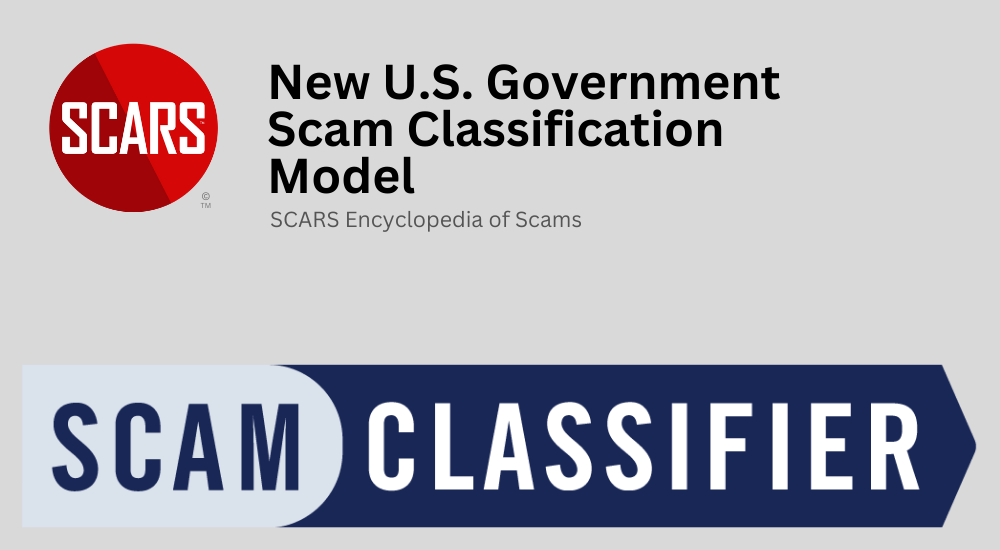
SCARS Institute’s Encyclopedia of Scams™ Published Continuously for 25 Years

The U.S. Govt. just wiped out your online privacy…
…and here’s what you can do to protect yourself
Congress and President Trump just approved a bill lifting restrictions imposed on Internet Service Providers (ISPs) concerning what they could do with information such as your browsing habits, location data, and Social Security number. That’s right, your online privacy is now for sale.
So what happens when this massive store of aggregated, location-specific customer data is up for grabs? We’re about to find out, but the prognosis isn’t good. See what you can do to cover your data.
Your ISP, browsing history, and what to do about it
RePosted from Malwarebytes Labs: April 4, 2017 by William Tsing
In late March 2017, the United States Congress approved a bill lifting restrictions imposed on ISPs last year concerning what they could do with information such as customer browsing habits, app usage history, location data, and Social Security numbers. They additionally absolved ISPs of the need to strengthen their existing customer data holdings against hackers and thieves. For more on the particulars of the bill, you can see reports on the Washington Post and Ars Technica. Given that the repealed restrictions hadn’t yet come into effect, the immediate impact of the new bill is somewhat unclear. But given what typically happens with massive stores of aggregated, location-specific customer data, the prognosis is not good.
So what’s the worst that can happen? Let’s run through a few probable outcomes:

Ad Retargeting:
We all might be familiar with this; when we buy a product online and then see ads for it relentlessly for a couple weeks thereafter. But with increased granularity of metadata, ad retargeting can be significantly more ‘effective.’ As an example, certain tech support scam companies prefer to draw their staff directly from complicit drug detoxes and rehabs, largely in order to ensure a compliant, desperate employee base. So the next time someone searches for help with an intractable heroin addiction, they might get targeted ads for unlicensed rehabs that come with a new job opportunity of scamming the elderly. Perhaps if my browser history correlates to those of low income or unemployed people, my ads would fill with work from home scams. Or low literacy search phrasing, in conjunction with low income, could get me directed to multi-level marketing scams. There are a cornucopia of ways to target the weak and vulnerable via metadata and it’s both legal and profitable.

Cyber Stalking:
As we can see with many domestic violence cases, abusers have no compunction against using technology to stalk and harass their victims. A 2014 article by NPR surveyed a series of domestic violence shelters and found 75% of their clients had dealt with abusers monitoring them remotely using hidden mobile apps. Some ill-conceived apps have linked multiple sets of user data together, to create inadvertent ‘stalking apps’. Once search metadata is openly sold, a person suffering domestic abuse would have a hard time searching for a local shelter without their partner knowing about it. Even with new homes and new identities, a victim would have to live with the fear of their search patterns combined with IP address identifying them, permanently. Stalking via metadata has been seen as an issue before and it will most likely happen again.

Web Browser History Ransom:
We’ve seen doxware in the wild before. But when the barrier to entry is lowered to simply having enough money to purchase the incriminating data in question, why wouldn’t more criminals get in on the game? As seen with ransomware and tech support scams, when technical limitations to a crime are removed, people willing to try it multiply exponentially. Ransoming a victim’s browser history would seem to be easy money.

Time to Breach:
Essentially, once this data begins to be collected, stored, and prepared for sale, there is a stopwatch set for time to breach and dissemination of your data to the highest bidder on the dark web. Think that’s hyperbolic? In 2015 Comcast published the personal data of almost 75,000 California customers due to operator error. In a separate incident in the same year, 200,000 Comcast customers had their data sold on the dark web. In 2014, Comcast hadn’t patched their mail servers adequately and hackers made off with extensive credentials. Not to be outdone, Time Warner had their customers breached in incidents here and here. Cox Communications paid the FCC a $595,000 fine for breach of its customer data. Given the track record of handling customer data thus far, how long until the next breach?
But this is bad and I don’t want this?
Although options are limited and sometimes frustrating, there are some things you can do. To combat ad retargeting, an ad blocker works quite well. It’s awfully tough to be taken in by deceptive or fraudulent, or just too intrusive advertising if you can’t see it. However, many of the most reputable news sites rely on advertising for revenue, so they ask users to disable ad blockers in order to access content. This doesn’t really address the issue of shadowy third parties doing untoward things with your data, which brings us to…
Virtual Private Networks (VPNs)
Here be dragons, though, because many VPN providers are no more trustworthy than the ISPs that we all love so dearly. If you go to a VPN review site you can see the latest VPNs and how they stack up on quality criteria, which generally include, but are not limited to:
Do they keep logs of your activity?
How much identifiable data do they keep on you?
Do they have physical control over their own VPN servers?
What countries are their servers located in?
Check out some reviews of popular VPNs based on answers to these questions here. Another question that you should be asking is how much a VPN costs. Free ones generally find some unsavory ways to monetize your traffic, which is what you’re trying to avoid to begin with.
HTTPS Everywhere
This is a browser extension published by the Electronic Freedom Foundation. It forces websites to use a more secure HTTPS connection when the website supports it. Encrypting traffic in this way does not protect the specific websites you visit from your ISP, but it does obfuscate specific content that you’re accessing on that page. And as a browser extension, it’s fairly easy to install, and probably falls under the category of things you should be doing anyway. If you want to find out more about HTTPS Everywhere, check out their FAQ here.
Calling your congressman
Privacy is a developing issue. As technology advances, its ability to infringe on our privacy in irritating and sometimes dangerous ways can increase. Letting your representatives know that this is a concern can help prevent worse legislation in the future. If you’d like to make your opinion on online privacy known, you can find your representatives here and here.
In conclusion, strong online privacy can sometimes be an inconvenience for those of us trying to catch cybercriminals. But its loss hurts all of us. Whether you have ‘something to hide’ or not, your data and your identity belong to you. Why shouldn’t you control how it’s used?
-/ 30 /-
What do you think about this?
Please share your thoughts in a comment below!
Table of Contents
- …and here’s what you can do to protect yourself
- Your ISP, browsing history, and what to do about it
- Ad Retargeting:
- Cyber Stalking:
- Web Browser History Ransom:
- Time to Breach:
- But this is bad and I don’t want this?
- Virtual Private Networks (VPNs)
- Do they keep logs of your activity?
- HTTPS Everywhere
- Calling your congressman
LEAVE A COMMENT?
Recent Comments
On Other Articles
- Arwyn Lautenschlager on Love Bombing And How Romance Scam Victims Are Forced To Feel: “I was love bombed to the point that I would do just about anything for the scammer(s). I was told…” Feb 11, 14:24
- on Dani Daniels (Kira Lee Orsag): Another Scammer’s Favorite: “You provide a valuable service! I wish more people knew about it!” Feb 10, 15:05
- on Danielle Delaunay/Danielle Genevieve – Stolen Identity/Stolen Photos – Impersonation Victim UPDATED 2024: “We highly recommend that you simply turn away form the scam and scammers, and focus on the development of a…” Feb 4, 19:47
- on The Art Of Deception: The Fundamental Principals Of Successful Deceptions – 2024: “I experienced many of the deceptive tactics that romance scammers use. I was told various stories of hardship and why…” Feb 4, 15:27
- on Danielle Delaunay/Danielle Genevieve – Stolen Identity/Stolen Photos – Impersonation Victim UPDATED 2024: “Yes, I’m in that exact situation also. “Danielle” has seriously scammed me for 3 years now. “She” (he) doesn’t know…” Feb 4, 14:58
- on An Essay on Justice and Money Recovery – 2026: “you are so right I accidentally clicked on online justice I signed an agreement for 12k upfront but cd only…” Feb 3, 08:16
- on The SCARS Institute Top 50 Celebrity Impersonation Scams – 2025: “Quora has had visits from scammers pretending to be Keanu Reeves and Paul McCartney in 2025 and 2026.” Jan 27, 17:45
- on Scam Victims Should Limit Their Exposure To Scam News & Scammer Photos: “I used to look at scammers photos all the time; however, I don’t feel the need to do it anymore.…” Jan 26, 23:19
- on After A Scam, No One Can Tell You How You Will React: “This article was very informative, my scams happened 5 years ago; however, l do remember several of those emotions and/or…” Jan 23, 17:17
- on Situational Awareness and How Trauma Makes Scam Victims Less Safe – 2024: “I need to be more observant and I am practicing situational awareness. I’m saving this article to remind me of…” Jan 21, 22:55
ARTICLE META
Important Information for New Scam Victims
- Please visit www.ScamVictimsSupport.org – a SCARS Website for New Scam Victims & Sextortion Victims
- Enroll in FREE SCARS Scam Survivor’s School now at www.SCARSeducation.org
- Please visit www.ScamPsychology.org – to more fully understand the psychological concepts involved in scams and scam victim recovery
If you are looking for local trauma counselors please visit counseling.AgainstScams.org or join SCARS for our counseling/therapy benefit: membership.AgainstScams.org
If you need to speak with someone now, you can dial 988 or find phone numbers for crisis hotlines all around the world here: www.opencounseling.com/suicide-hotlines
A Note About Labeling!
We often use the term ‘scam victim’ in our articles, but this is a convenience to help those searching for information in search engines like Google. It is just a convenience and has no deeper meaning. If you have come through such an experience, YOU are a Survivor! It was not your fault. You are not alone! Axios!
A Question of Trust
At the SCARS Institute, we invite you to do your own research on the topics we speak about and publish, Our team investigates the subject being discussed, especially when it comes to understanding the scam victims-survivors experience. You can do Google searches but in many cases, you will have to wade through scientific papers and studies. However, remember that biases and perspectives matter and influence the outcome. Regardless, we encourage you to explore these topics as thoroughly as you can for your own awareness.
Statement About Victim Blaming
SCARS Institute articles examine different aspects of the scam victim experience, as well as those who may have been secondary victims. This work focuses on understanding victimization through the science of victimology, including common psychological and behavioral responses. The purpose is to help victims and survivors understand why these crimes occurred, reduce shame and self-blame, strengthen recovery programs and victim opportunities, and lower the risk of future victimization.
At times, these discussions may sound uncomfortable, overwhelming, or may be mistaken for blame. They are not. Scam victims are never blamed. Our goal is to explain the mechanisms of deception and the human responses that scammers exploit, and the processes that occur after the scam ends, so victims can better understand what happened to them and why it felt convincing at the time, and what the path looks like going forward.
Articles that address the psychology, neurology, physiology, and other characteristics of scams and the victim experience recognize that all people share cognitive and emotional traits that can be manipulated under the right conditions. These characteristics are not flaws. They are normal human functions that criminals deliberately exploit. Victims typically have little awareness of these mechanisms while a scam is unfolding and a very limited ability to control them. Awareness often comes only after the harm has occurred.
By explaining these processes, these articles help victims make sense of their experiences, understand common post-scam reactions, and identify ways to protect themselves moving forward. This knowledge supports recovery by replacing confusion and self-blame with clarity, context, and self-compassion.
Additional educational material on these topics is available at ScamPsychology.org – ScamsNOW.com and other SCARS Institute websites.
Psychology Disclaimer:
All articles about psychology and the human brain on this website are for information & education only
The information provided in this article is intended for educational and self-help purposes only and should not be construed as a substitute for professional therapy or counseling.
While any self-help techniques outlined herein may be beneficial for scam victims seeking to recover from their experience and move towards recovery, it is important to consult with a qualified mental health professional before initiating any course of action. Each individual’s experience and needs are unique, and what works for one person may not be suitable for another.
Additionally, any approach may not be appropriate for individuals with certain pre-existing mental health conditions or trauma histories. It is advisable to seek guidance from a licensed therapist or counselor who can provide personalized support, guidance, and treatment tailored to your specific needs.
If you are experiencing significant distress or emotional difficulties related to a scam or other traumatic event, please consult your doctor or mental health provider for appropriate care and support.
Also read our SCARS Institute Statement about Professional Care for Scam Victims – click here to go to our ScamsNOW.com website.








![SCARS™ Special Report: Help Wanted Scams [Updated] job scams SCARS™ Special Report: Help Wanted Scams [Updated] job scams](https://romancescamsnow.com/wp-content/uploads/2020/03/job-scams.png)







Thank you for your comment. You may receive an email to follow up. We never share your data with marketers.